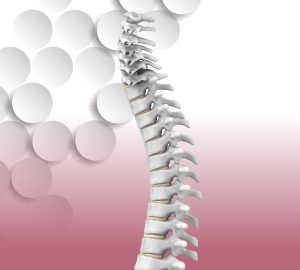As we age, the number of calories we need begins to decline, but the amount of nutrients necessary to stay healthy does not. That makes it important to ensure that every bite you take is packed with the vitamins and minerals you need. Here are some key nutrients that can be in short supply in the diets of older adults.
calcium
- Why you need it: Calcium plays a vital role in keeping bones healthy. It also has an effect on muscle function, nerve transmission and hormone secretion. An estimated two-thirds of adults are at risk of calcium deficiency, according to The National Resource Center on Nutrition & Aging. This problem is exacerbated by the fact that the body’s ability to absorb calcium decreases with age.
- How much you need: For men between the ages 51 and 70, 1,000 milligrams a day is recommended. For women of the same age, 1,200 milligrams is suggested. For all adults
71 and older, the recommendation is 1,200 milligrams. - Where to get it: Calcium is found naturally in dairy products and some vegetables, such as kale, bok choy and broccoli. You also can find beverages and cereals that are fortified with calcium.
fiber
- Why you need it: An estimated 95% of adults do not get enough fiber. A type of indigestible carbohydrate, it plays a key role in digestion, reducing inflammation, creating the feeling of being full and preventing constipation. It also plays a role in reducing the risk of heart disease, diabetes and some cancers.
- How much you need: It’s recommended that men 50 and older get 30 grams of fiber a day. For women, the daily recommendation is 21 grams.
- Where to get it: Fiber is found in a wide variety of plant-based foods, like fruits, vegetables, legumes, nuts and seeds. Whole grains also are a good source of fiber, but the content is reduced when the grains are processed, such as in white bread.
folic acid
- Why you need it: Also known as folate or vitamin B9, folic acid plays an important role in the nervous system for people of all ages. Research indicates that for older adults, a deficiency is connected to changes in cognitive and social function and mood, potentially leading to conditions like depression and dementia.
- How much you need: It’s recommended that adults daily intake of folic acid is 400 micrograms. Alcohol consumption can inhibit absorption, so if you drink, consider increasing your intake to 600 micrograms.
- Where to get it: Since 1998, the U.S. Food and Drug Administration has required food manufacturers to add folic acid to common foods, such as breads, cereals, pasta, rice and other grain products. Other sources include dark green leafy vegetables, legumes, fruit, whole grains, eggs, aquatic foods and liver.
magnesium
- Why you need it: Magnesium plays a role in several of the body’s systems. It helps maintain function in our nerves and muscles and supports a healthy immune system. It keeps bones strong and helps maintain a steady heartbeat. Some studies have found that magnesium deficiency is related to trouble sleeping, stress and anxiety.
- How much you need: The recommended daily requirements of magnesium for adults 51 and older is 420 milligrams for men and 320 milligrams for women.
■ Where to get it: Magnesium-rich foods include dark leafy greens, legumes, nuts and whole grains. A general guideline is that if a food contains fiber, then it also has magnesium.
omega 3 fatty acids
- Why you need it: Omega 3 fatty acids regulate triglycerides, reduce inflammation and strengthen bones and joints. As unsaturated fats, they also reduce the risk of cardiovascular disease. Research also has shown that it can help improve brain function, especially that related to memory and motor skills. Omega 3 fatty acids also may help reduce the risk of depression.
- How much you need: For adults over the age of 50, the recommended daily intake of omega 3 fatty acids is 1.6 grams for men and 1.1 grams for women.
- Where to get it: Fish such as herring, salmon and tuna are great sources of omega 3 fatty acids as is flax. Avocados and broccoli also have small traces of this important nutrient.
potassium
- Why you need it: As an electrolyte, potassium carries a small electrical charge that activates various cell and nerve functions. It’s necessary for regulating normal nerve function, heart rhythm, energy levels and brain function.
- How much you need: For adult men, an adequate daily intake of potassium is 3,400 milligrams. For women, the recommendation is 2,600 milligrams.
- Where to get it: Bananas are the most well known source of potassium, but you can also find it in leafy greens, beans, nuts, dairy foods and starchy vegetables like winter squashes, such as butternut and acorn.
vitamin b12
- Why you need it: Vitamin B12 is involved in making DNA, red blood cell formation and proper nerve function. Some studies have also linked the nutrient to bone health as low levels may result in increased fracture risk.
- How much you need: The recommended daily intake of vitamin B12 for both men and women is 2.4 micrograms.
- Where to get it: Vitamin B12 is primarily found in animal products, such as seafood, meat and dairy. People with a vegan or vegetarian diet will want to look for products that are fortified with vitamin B12, such as cereal or nutritional yeast.
vitamin d
- Why you need it: Vitamin D helps the body absorb and retain calcium and phosphorus, which are critical for building bone. Studies also have shown that it can reduce cancer cell growth, help control infection and reduce inflammation. Many organs have receptors for vitamin D, suggesting more important roles that may be revealed through future research.
- How much you need: For adults under the age of 70, the recommended daily amount of vitamin D is 15 micrograms. For people 70 and older, it is 20 micrograms.
- Where to get it: Fatty fish and fish liver oils are the best source of vitamin D. Smaller amounts are found in egg yolks, cheese and beef liver. Dairy products and cereal are often fortified with the vitamin.
Source: National Resource Center on Nutrition & Aging, National Institutes of Health, Harvard Health








